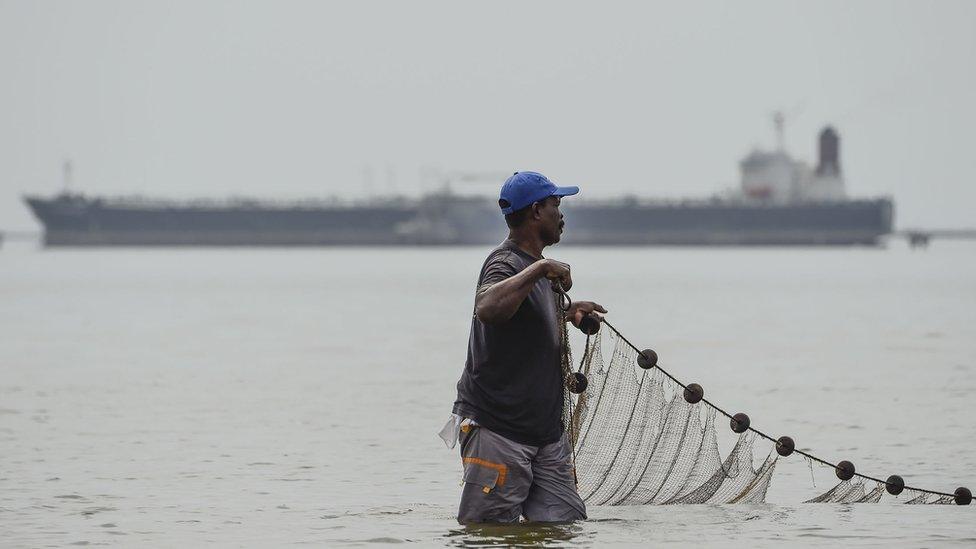'A total mess': Venezuelans see little hope of improvement
- Published
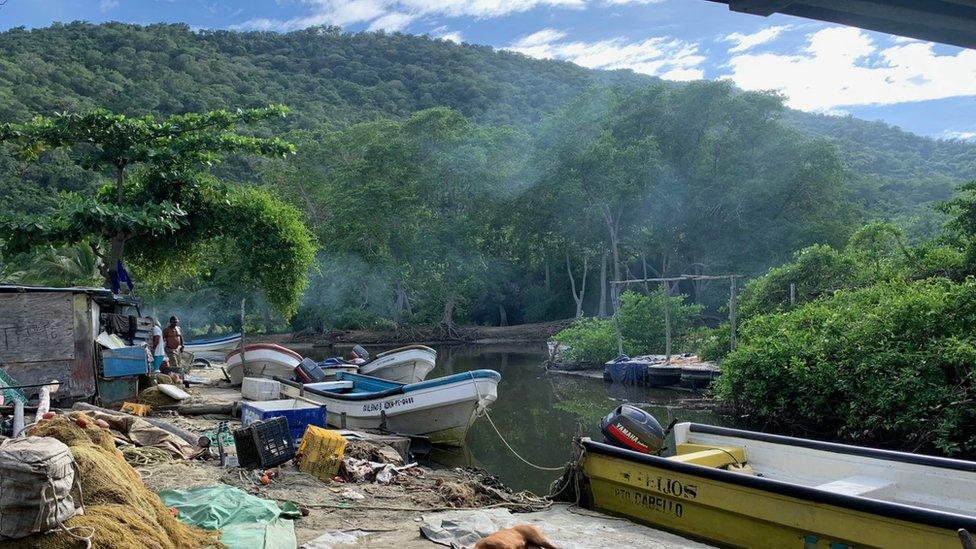
Making a living through fishing has become difficult as fuel is ever more scarce
Dawn has just broken at Patanemo bay, a large white sandy beach on Venezuela's Caribbean coast.
Fishermen are cooking up breakfast on an open fire alongside their fishing shed. On the menu, fish of course: fried bonito with boiled cassava.
Some colleagues have just returned from emptying the nets from overnight. They off-load several cool-boxes of red snapper and bonito but as they start cleaning up their catch, scraping the scales off and chopping the flesh up, one fisherman tells me they are disappointed.
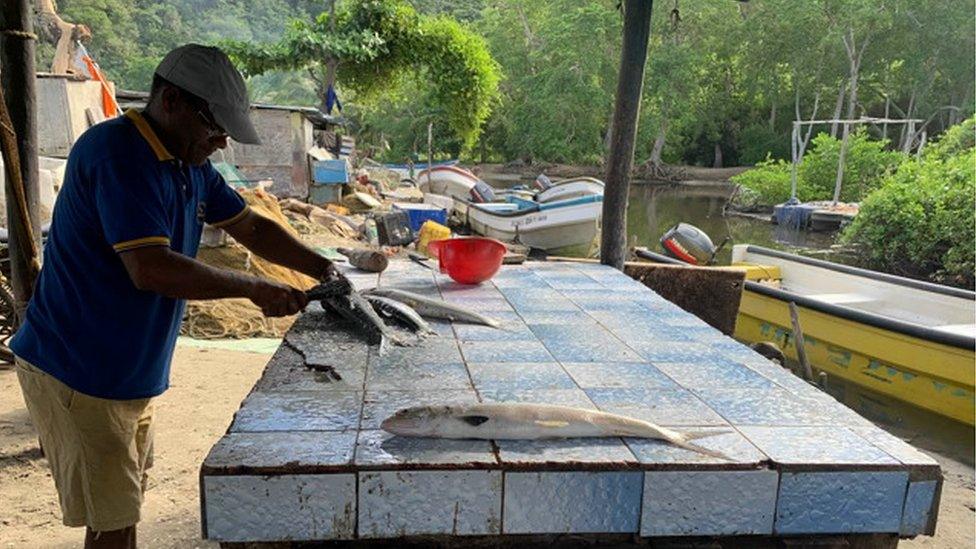
There is little money in fishing these days
They will be lucky if they get $3 (£2.25) each from this haul, once they have covered their fuel costs.
Running out of fuel
Grey Barreto is one of the fishermen. He is sitting in a hammock, relaxing. Mr Barreto says that they would head back out to catch more if they could, but they cannot get hold of fuel.
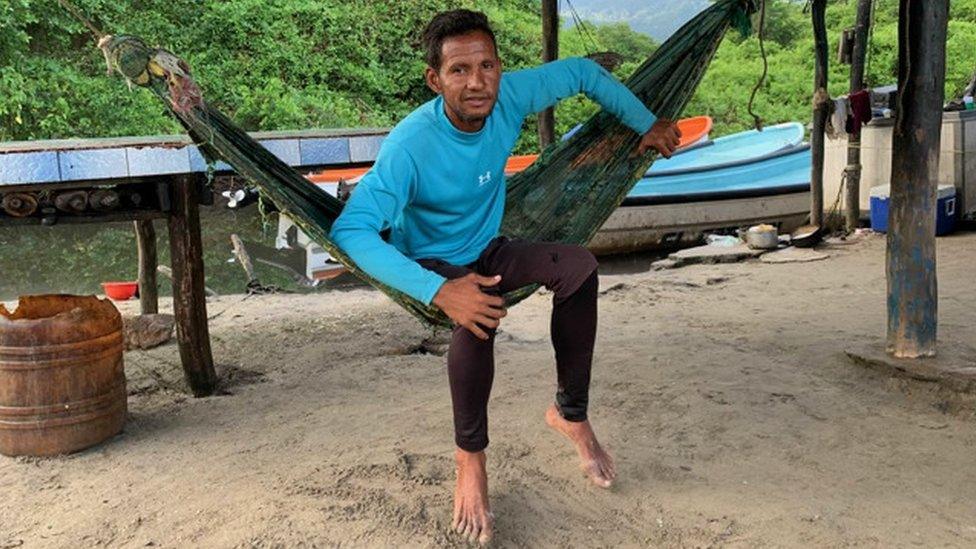
Grey Barreto would like to go out fishing more often but without a steady fuel supply, there is a lot of down time
In a country which has grown used to economic hardships, this year has been more brutal than most, he tells me.
But it did not start with Covid-19. "We were told the fuel was running out in February," he tells me. "This is an oil-rich country, 'how is that possible?', we thought. We didn't listen."
Then the fuel shortages started; and shortly after, the pandemic hit.
Coronavirus: Venezuelans struggling with fuel shortage
The whole country shut down. "We couldn't get anything and we had to start trading fuel for food," he says.
While fishing is their bread-and-butter, many fishermen also earn money ferrying tourists to nearby deserted beaches. But in the pandemic, that dried up. Now, it is just fish that keeps them going, but only just.
Venezuela may have the world's largest oil reserves but years of underinvestment and mismanagement, plus added pressure from US sanctions, mean production is about a third of what it should be.
About an hour along the coast from the beach, El Palito refinery encapsulates that demise. It is spewing thick black smoke into the atmosphere and the facilities look tired. It is a side of the economic struggles the government does its best to hide.
But it is impossible to cover up because, everywhere you drive, Venezuelans are queueing for petrol. This is a country whose people used to have fuel on tap, and who are used to paying next to nothing for it.
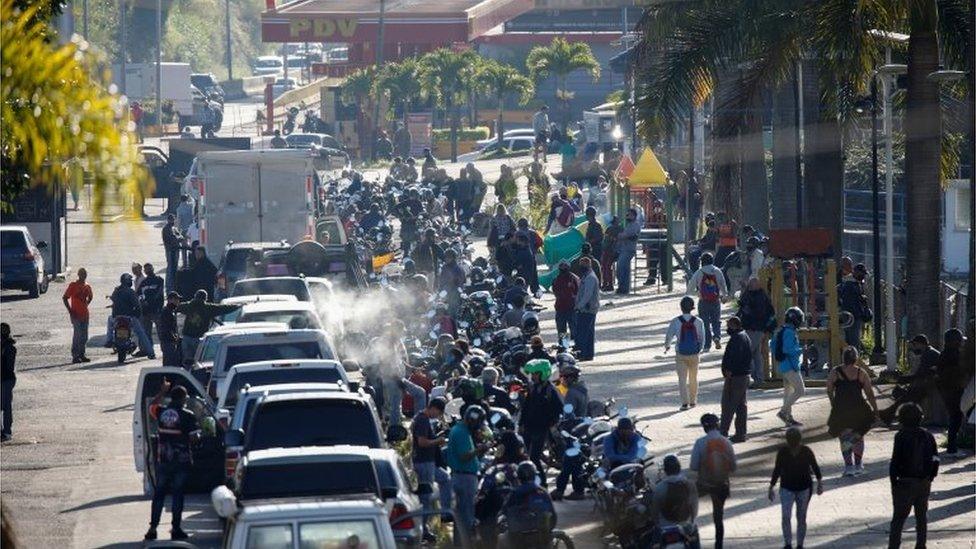
Venezuelans come prepared when they queue for petrol; they know it can take days
Earlier this year, President Nicolás Maduro announced a hike in fuel prices, but even that does not guarantee a tank of petrol.

Read more:

Outside a station in the centre of Valencia, one of Venezuela's biggest cities, I meet Juan Pablo Henríquez and his 78-year-old father Manuel.
They have both brought their cars to fill up and to keep each other company. It is not uncommon to have to stay several nights in the line to get that precious tank of petrol.
'I have no life'
They are five hours into their wait, and this is a good day, Manuel tells me without looking at me in the eye, so angry is he about spending his retirement sitting in queues.
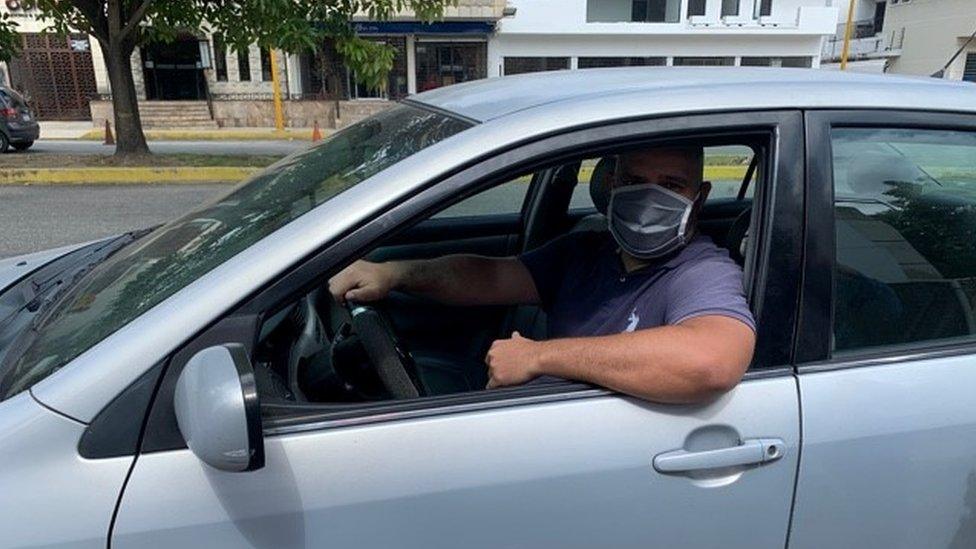
Spending days queuing for petrol is par for the course in Venezuela
"It's a disaster, the good times have gone," he says. "What hope is there? I'm about to turn 80 and I have no life."
Further up the line, Bexy is another exasperated driver. She has several snacks in the passenger seat in preparation for the long wait.
"It's absurd that in such an oil-rich country, the government has finished the industry off," she says. "It's not just petrol either, I get home from this hot queue, sweating, I want a shower, there's no water, then no electricity, it's a total mess."
Black market fuel
Later in the day, I meet Juan (not his real name). He is busy decanting petrol from a jerry can into a car's fuel tank.
Juan used to work for a multinational company. Now he spends his days sitting in queues to fill up his tank. He then sells it on the black market, asking for double the price he paid at the pump.
But there are other illicit ways of getting that liquid gold. Juan says that the military has been selling contraband fuel this past year. "They have access to everything, they're the ones in control."
Back at the beach, the fishermen tell me the same thing: the police, the military, anyone with special access is taking advantage of this precious commodity in Venezuela. Corruption is rife but people rely on it to carry on with their lives.
As night falls, the fishermen prepare for one more trip out to sea. It is their last chance for a decent catch. But an hour later they are back, with just five fish.
Today is not their day, and they have used a precious tank of petrol for nothing. And there is no guarantee tomorrow will be any better.
Venezuela's fuel crisis: This funeral car ran out of petrol on its way to the cemetery
Related topics
- Published7 December 2020
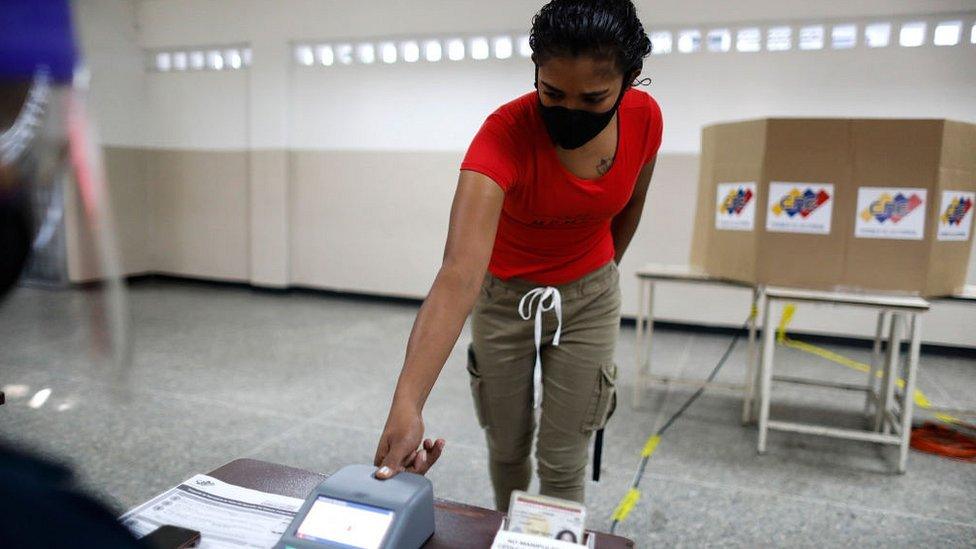
- Published27 November 2020

- Published24 October 2020
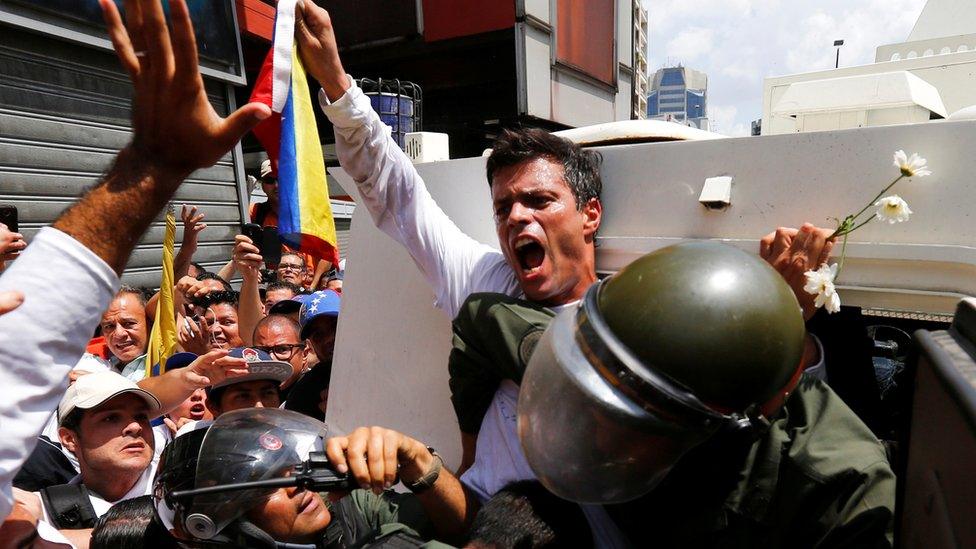
- Published5 October 2020
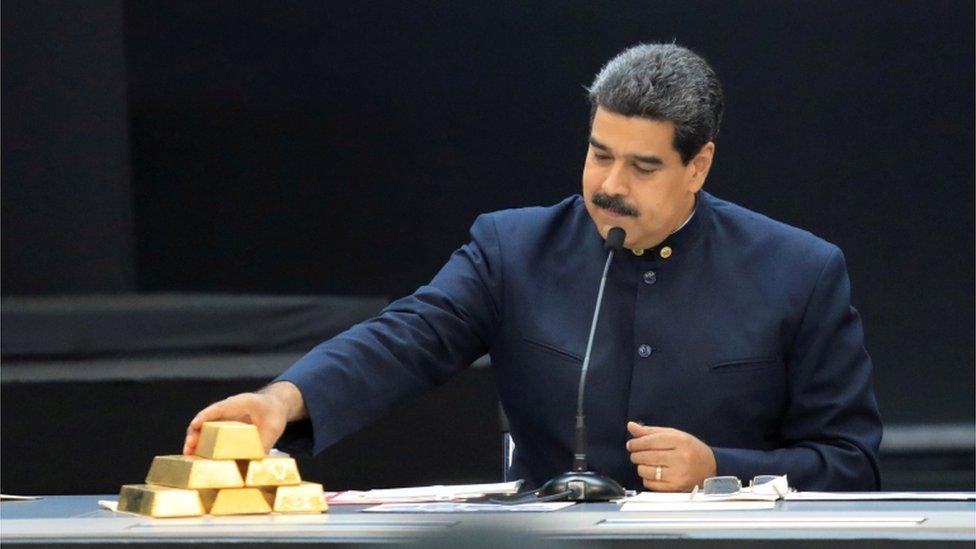
- Published16 September 2020
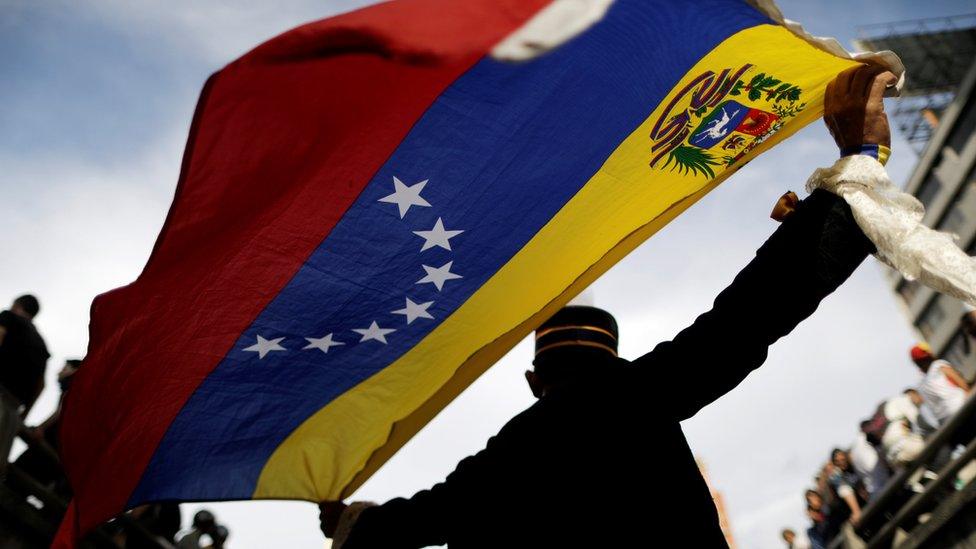
- Published14 August 2020
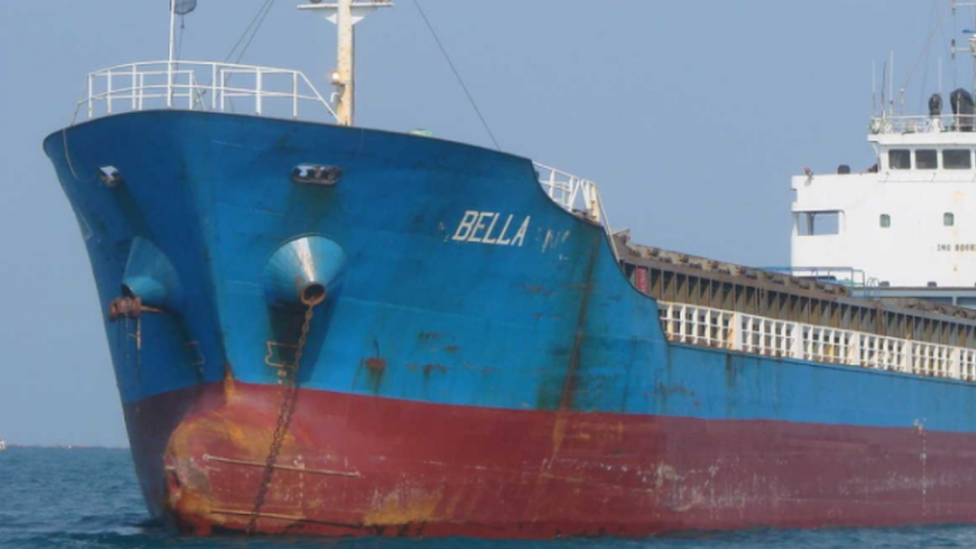
- Published25 May 2020
